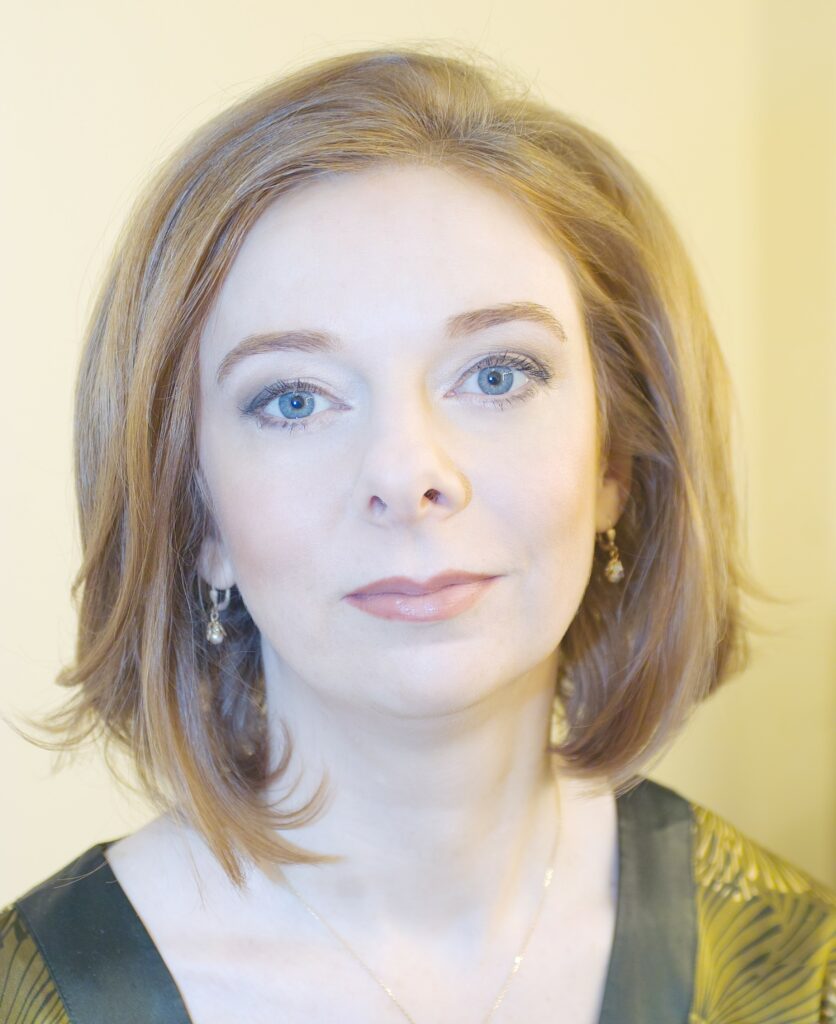ASLE’s Scholar of the Month for December 2021 is Siobhan Carroll.
 Siobhan Carroll is an Associate Professor of English at the University of Delaware. A scholar and an author of speculative fiction, her work focuses on the environmental imaginaries of early nineteenth-century Britain.
Siobhan Carroll is an Associate Professor of English at the University of Delaware. A scholar and an author of speculative fiction, her work focuses on the environmental imaginaries of early nineteenth-century Britain.
How did you become interested in studying ecocriticism and/or the environmental humanities?
I’ve always been interested in vulnerable ecosystems. In my first book project, this interest translated into an attempt to understand how scientific exploration helped imaginatively construct environments like the Arctic. At the time, I was primarily in dialogue with geographers and spatial theory rather than with environmental criticism, and it wasn’t until that book was finished that I belatedly recognized it as an ecocritical project. Since then, I feel like I’ve been playing catch up in my reading, surveying the major contributions to ecocriticism while also keeping abreast of all the brilliant scholarship that’s coming out. Alas, I’ve been in academia long enough to know that this feeling isn’t going away!
Who is your favorite environmental artist, writer, or filmmaker? Or what is your favorite environmental text? Why?
That’s a hard one. Like many, I’m indebted to Robin Wall Kimmerer’s Braiding Sweetgrass for its thoughtful exploration of the intersections of indigenous and settler scientific practices. In fiction, one of my favorite novels to teach is N.K. Jemisin’s The Fifth Season, for its smart representation of racism and extractivism. Both of these books are pretty familiar to ASLE readers these days.
If I had to nominate a novel that is less ubiquitous on current reading lists… As someone who studies speculative literature, I think Richard Adams’s Watership Down is strangely absent from twentieth-century ecocritical discussions. I found myself re-reading Watership Down during early days of the pandemic, and there’s so much there that still feels relevant regarding the importance of attending to ecological relationships. It also represents a striking formal innovation in the novel’s representation of nonhuman perspectives, one that abandons the anthropomorphized Black Beauty “It” Narrative in favor of an anthropological-style analysis of an imagined animal culture. If you haven’t read it since you were a kid, I’d suggest picking it up again. It’s an interesting book.
What are you currently working on?
My new book project is on improvement and ecological agency in the British Empire from 1791 through the 1850s. In it, I identify the birth of an Anthropocene consciousness in the grand geo-engineering visions articulated in the poetry of Erasmus Darwin (who played an important role in the success of James Watt’s steam engine). In the latter half of the book, I argue for figures such as Jane Austen, Mary Prince, and Kahgegagahbowh (George Copway) as early Anthropocene respondents. Overall, in this project I’m interested in how ecological agencies were excluded from, while others came to define, the category of “the human.”
I have a lot of other “on the go” projects that relate to contemporary speculative fiction. I have a couple journal articles on the back burner, and a short story inspired by Rebecca Giggs’s and Bathsheba Demuth’s work on whales that should be out in Ellen Datlow’s new horror anthology next year.
What is something you are reading right now (environmental humanities-related or otherwise) that inspires you, either personally or professionally? Comment briefly on why or how it inspires you.
Susanna Clarke’s speculative novel Piranesi might seem on the surface to have nothing to do with environmental issues, but I think it’s largely about rescuing a sense of wonder at the natural world and reclaiming a sense of the positive potential of human beings from the brutalities of scientific exploitation and a zeitgeist of climate despair. Also, it’s charming and beautiful. I recommend it.
Is there a scholar in the field who inspires you? Why?
There’s so much exciting work happening right now in nineteenth-century ecocriticism. I’d cite Deanna K. Kreisel, both for her work in bringing the Vcologies research group together and for her insightful scholarship.
